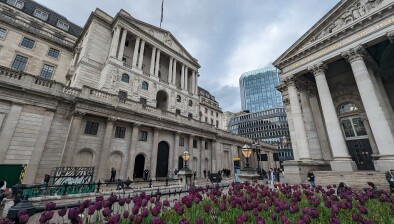UK CPI inflation holds at 3.4% as falling fuel prices offset soaring food costs

UK CPI inflation has remained frozen at 3.4% in May, after the Office for National Statistics corrected April’s 3.5% reading to 3.4%.
Annual food inflation surged to 4.4% last month, a notable rise from 3.4% in April. This was spurred by the fastest-ever recorded increases in the price of sugar, jam, and chocolate, with the latter soaring by 17.7% due to poor cocoa harvests in Ghana and Ivory Coast. The cost of furniture and household goods also rose, contributing to an increase in the inflation rate for goods from 1.7% to 2.0%.
The Office for National Statistics (ONS) reported that core inflation, which strips out volatile items like energy and food, fell to 3.5% from 3.8%. Services inflation, a key area of concern for the Bank of England, also showed a more rapid slowdown, decreasing from 5.4% to 4.7%.
This mixed economic picture complicates the upcoming interest rate decision by the Bank of England. Despite the slight fall in the headline consumer prices index (CPI), policymakers are widely expected to maintain the current interest rate of 4.25%. The Bank remains cautious, particularly with inflation still considerably above its 2% target and persistent wage growth.
Recent data indicating a slowing economy, with falling wage growth, rising unemployment, and economic contraction in April, has increased pressure on the central bank to consider rate cuts. However, economists suggest that persistent inflationary pressures and global economic uncertainty may limit the scope for such moves, with financial markets anticipating two rate cuts by the end of the year.
Scottish Friendly savings expert Kevin Brown said: “Inflation may have stood still in May, but for millions of households still feeling the pinch, this is no victory. The cost of living remains stubbornly high, and today’s figures will feel like treading water – not progress.
“While it’s a relief that inflation didn’t jump again, like it did last month, it won’t be enough to sway the Monetary Policy Committee (MPC) into cutting rates just yet. We’re still looking at August at the earliest – and possibly later.
“That’s more pain for mortgage holders hoping for lower rates, but a stay of execution for savers. The longer the MPC waits, the longer savers can enjoy competitive returns – but that window is closing fast. Now may be the time to gear up and lock in the best rate possible, before the opportunity slips away.”
Guy Foster, chief strategist at RBC Brewin Dolphin, said: “The CPI release doesn’t change much for the Monetary Policy Committee (MPC). It will be concerned by the weakness of demand in recent indicators covering the consumer, housing and labour markets, especially as higher National Insurance (NI) and utility bills bite.
“A helpful fall in services inflation will boost the case for rate cuts, but the series was distorted by volatile air fares and the correction of a previous error.
“Like most central banks, the MPC has spent much of the last few years comfortably exceeding the inflation target and, having cut several times already, they will now be on hold at this week’s meeting.
“By the meeting after next, in August, it may be clearer how the NI rise is affecting employment, where some worrying signs have begun to emerge.”
Felix Feather, economist at Aberdeen, added: “Policymakers will take a little comfort from the downside surprise in services inflation, which dropped to 4.7% from 5.4%, slightly behind expectations for a 4.8% outturn.
We are sticking with our call for the Bank of England to continue to reduce rates at a quarterly cadence. But geopolitical uncertainty and risks from US trade policy raise both upside and downside risks to this forecast.”






